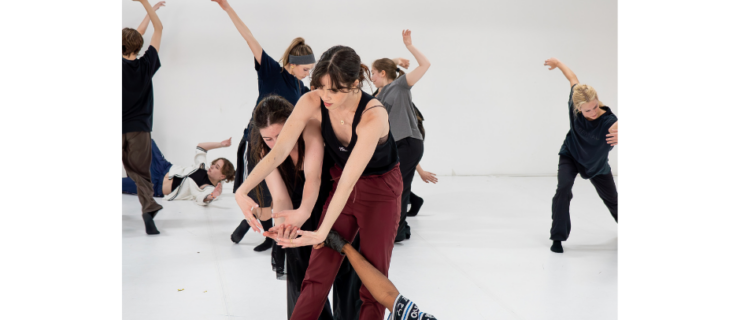Atlanta Ballet
Missing an orchestra due to finances turned out to be a mixed blessing for Atlanta Ballet. Without one to play the original score for The Great Gatsby, artistic director John McFall was forced to rethink his take on the piece. Working with co-choreographer Lauri Stallings, McFall came up with the idea to use recordings of vintage jazz and cabaret standards, mostly from the 1920s—the period in which F. Scott Fitzgerald set his novel.
It is in these atmospheric big-band and small-ensemble arrangements, sung by the likes of Louis Armstrong and Ella Fitzgerald, that this Gatsby is wrapped. McFall, a traditionalist, and Stallings, a bold modernist, crafted a piece that capitalizes on the distinctiveness of their voices and yet flow naturally from one scene to the next.
McFall’s pas de deux to “What’ll I Do” for Gatsby and Daisy was breathtaking for its seamless lyricism. Stallings’ finest choreographic moment was “Charleston,” a wildly frenetic, athletic party that arranges the full ensemble into long horizontal rows of simultaneous jerky elbow lifts, head twists, and knock-kneed Charleston-style leg thrusts.
Opening night casting optimized this company’s resources, pairing the ingratiatingly large-limbed Jonah Hooper with the petite, lithesome Courtney Necessary, who seems to have evolved overnight from corps member to principal. Another unexpected star turn was that of apprentice Nicole Johnson, who, with Nathan Griswold as Nick, led the aforementioned “Charleston” with a polish and a spark. Like Hooper, Griswold is a big fellow, but finessed the non-balletic quirky moves Stallings favors.
Christian Clark, previously seen at world-class levels of technique and concentration, seems lackluster this season; his portrayal of Tom, lacked emotion, a key element in a character whose primary motivation is anger. As his lover Myrtle, the beautiful Anne Tyler Harshbarger, another one rising from the ranks, slithered and shimmered, part snake, part sex goddess. Supporting cast was strong, although some of the ensemble numbers were under-rehearsed—a result of a new work behind schedule, no doubt.



